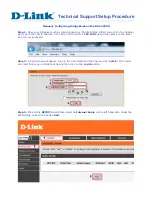
21
Chapter 6: Configuring the Wireless-G Broadband Router
The Wireless Tab - Wireless Security
Wireless-G Broadband Router
The Wireless Tab - Wireless Security
The Wireless Security settings configure the security of your wireless network. There are four wireless security
mode options supported by the Router: WPA Personal, WPA Enterprise, WPA2 Personal, WPA2 Enterprise, RADIUS,
and WEP. (WEP stands for Wired Equivalent Privacy, WPA stands for Wi-Fi Protected Access, which is a security
standard stronger than WEP encryption. WPA2 is stronger than WPA. WPA Enterprise is WPA used in coordination
with a RADIUS server. RADIUS stands for Remote Authentication Dial-In User Service.) These are briefly discussed
here. For detailed instructions on configuring wireless security for the Router, turn to “Appendix B: Wireless
Security.”
WPA Personal
. WPA gives you two encryption methods, TKIP and AES, with dynamic encryption keys. Select the
type of algorithm,
TKIP
or
AES
. Enter a WPA Shared Key of 8-63 characters. Then enter a Group Key Renewal
period, which instructs the Router how often it should change the encryption keys.
WPA Enterprise
. This option features WPA used in coordination with a RADIUS server. (This should only be used
when a RADIUS server is connected to the Router.) First, select the type of WPA algorithm you want to use,
TKIP
or
AES
. Enter the RADIUS server’s IP Address and port number, along with a key shared between the Router and
the server. Last, enter a Key Renewal Timeout, which instructs the Router how often it should change the
encryption keys.
Figure 5-17: Wireless Tab - Wireless Security
(WPA Personal)
Figure 5-18: Wireless Tab - Wireless Security
(WPA Enterprise)
IMPORTANT:
If you are using WPA, always
remember that each device in your wireless
network MUST use the same WPA method
and shared key, or else the network will not
function properly.
















































